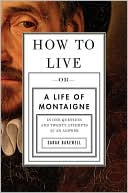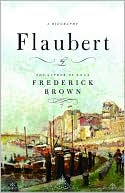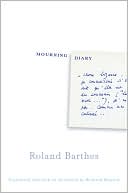Tete-a -Tete: The Tumultuous Lives and Loves of Simone de Beauvoir and Jean-Paul Sartre
Passionate, freethinking existentialist philosopher-writers Simone de Beauvoir and Jean-Paul Sartre are one of the world's legendary couples. Their committed but notoriously open union generated no end of controversy in their day. Biographer Hazel Rowley offers the first dual portrait of these two colossal figures and their intense, often embattled relationship. Through original interviews and access to new primary sources, Rowley portrays Sartre and Beauvoir up close.\ Tête-à-Tête...
Search in google:
They are one of the world's legendary couples. We can't think of one without thinking of the other. Simone de Beauvoir and Jean-Paul Sartre -- those passionate, freethinking existentialist philosopher-writers -- had a committed but notoriously open union that generated no end of controversy. With Tete-a-Tete, distinguished biographer Hazel Rowley offers the first dual portrait of these two colossal figures and their intense, often embattled relationship. Through original interviews and access to new primary sources, Rowley portrays them up close, in their most intimate moments. We witness Beauvoir and Sartre with their circle, holding court in Paris cafes. We learn the details of their infamous romantic entanglements with the young Olga Kosakiewicz and others; of their efforts to protest the wars in Algeria and Vietnam; and of Beauvoir's tempestuous love affair with Nelson Algren. We follow along on their many travels, involving meetings with dignitaries such as Roosevelt, Khrushchev, and Castro. We listen in on the couple's conversations about Sartre's Nausea, Being and Nothingness, and Words, and Beauvoir's The Second Sex, The Mandarins, and her memoirs. And we hear the anguished discussions that led Sartre to refuse the Nobel Prize. The impact of their writings on modern thought cannot be overestimated, but Beauvoir and Sartre are remembered just as much for the lives they led. They were brilliant, courageous, profoundly innovative individuals, and Tete-a-Tete shows the passion, energy, daring, humor, and contradictions of their remarkable, unorthodox relationship. Theirs is a great story -- and a great story is precisely what Beauvoir and Sartre most wanted their lives to be. Seattle Times “A fast-moving yet vast saga, spanning the bulk of the 20th century and much of the world.”
\ \ Tete-a-Tete\ \ \ \ The Tumultuous Lives and Loves of Simone de Beauvoir and Jean-Paul Sartre\ \ \ \ By Hazel Rowley\ \ \ HarperCollins Publishers, Inc.\ \ \ \ Copyright © 2006\ \ Hazel Rowley\ All right reserved.\ \ ISBN: 0060520604\ \ \ Chapter one\ Nineteen Twenty-Nine\ Jean-Paul Sartre had been interested in her for months. At twenty-one, she was the youngest of the Sorbonne students preparing that year for the agrégation in philosophy, the competitive national teacher's examination. She had given a talk in class on Leibniz, and Sartre was struck by her beauty and brilliance, her husky voice, and her rapidfire speech.\ His friend René Maheu had been courting her since the spring. Maheu was married, but he and Simone de Beauvoir seemed very taken with each other. They both went to the Bibliothèque Nationale, the National Library, to prepare for their exams, sat beside each other to work, and often had lunch together. Sartre had been hoping for an introduction, but Maheu guarded her fiercely. One afternoon, the two men had been strolling together in the Luxembourg Gardens when they saw Mademoiselle de Beauvoir across the pond. She was by herself, and it was obvious she had seen them, but Maheu chose to ignore her rather than present her to Sartre.\ Early in May, she disappeared. A week or so later, Sartre and Maheu were sitting on a windowsill outside the lecture theater in one of the long, labyrinthine corridors of the Sorbonne when sheappeared, wearing a black dress and little black hat swathed in crepe. Maheu went up to her, grasped her hand warmly, and asked why she was in mourning, but he did not introduce her to his friend.\ Then Sartre took the initiative. During dull lectures, he and his friends entertained themselves by drawing humorous sketches in which they none too delicately expressed what they thought of certain philosophers and their philosophies. He picked out a particularly irreverent one, wrote on it, "To Mademoiselle Simone de Beauvoir, in memory of an explication of Leibniz," and asked Maheu to give it to her, which he did.\ Sartre then made a suggestion to his two friends René Maheu and Paul Nizan. They were planning to prepare for the oral exams together. Simone de Beauvoir knew her Leibniz well and was clearly very bright; suppose they asked her to join them?\ By mid-June, the written exams were over and there was only a month before the orals. Maheu was off to join his wife in Normandy for ten days. Sartre told him he would like to make the acquaintance of Mademoiselle de Beauvoir before they started working together as a group. He suggested a tearoom on the Rue de Médicis, across from the Luxembourg Gardens, five minutes from the Sorbonne. Maheu passed on the message but told Beauvoir he was afraid Sartre would take advantage of his absence to make off with her himself. "I don't want anyone to get in the way of my most precious feelings," Maheu said. He had talked about Sartre in glowing terms, but as far as women were concerned, he did not trust him an inch.\ On the designated afternoon, Sartre waited in the tearoom, reading and smoking his pipe. He was taken aback when a fair-haired young woman walked up to him, introduced herself as Hélène de Beauvoir, and explained that her sister was unable to come. "How did you know I was Sartre?" he asked. Poupette, as everyone called her, looked sheepish. "Because . . . you are wearing glasses." Sartre pointed out that the man sitting in the other corner was also wearing glasses.\ Sartre thought he knew why Simone de Beauvoir had not turned up, and he could guess how she had described him to her younger sister. He was right. Beauvoir had told Poupette that she would have no trouble recognizing Sartre. He was extremely short, he wore glasses, and he was "very ugly."1\ Sartre was gallant, and took Poupette to see the new American film A Girl in Every Port. The conversation flagged. When she got home, Poupette told her sister that Jean-Paul Sartre was nothing like the lively dynamo Maheu had cracked him up to be.\ This was not an auspicious beginning. Sartre could not stand being rejected by women. Throughout his life, he would never forgive his mother for betraying him, as he saw it, by marrying again, when he was eleven. Then there was that traumatic episode in La Rochelle, when he was twelve.\ His father, Jean-Baptiste Sartre, had died when Jean-Paul was fifteen months old. Twenty-four-year-old Anne-Marie bundled up her little "Poulou" and went to live with her parents in Paris.2 She belonged to the dynasty of Schweitzers, a Protestant family from Alsace (the famous Albert Schweitzer was her cousin), and like all the Schweitzers, Anne-Marie was tall and slim. Physically, Poulou would take after his diminutive father. And when he was two, he went almost blind in his right eye.\ Poulou was the little prince in his grandparents' house, doted on and idolized by his mother, grandmother, and grandfather. In that patriarchal household--dominated by the lanky, bearded, and imperious Charles Schweitzer--Anne-Marie felt to Poulou like an older sister. She was financially dependent on her parents, and they condescended to her. There were three bedrooms in the house: the grandfather's, the grandmother's, and the one they called "the children's," which Anne-Marie shared with her son.\ Anne-Marie gave Poulou her undivided attention. They told each other their troubles. She read to him. She played the piano for him. On rainy Sundays they would earnestly debate whether to go to the circus, a museum, or a movie. Charles Schweitzer would appear at the door of his book-lined study. "Where are you children off to?" he would ask. It was usually the movies.\ "All I wanted to see was Anne-Marie, the young girl of my mornings," Sartre would write in his autobiography, Words. "All I wanted to hear was her voice."\ \ Continues...\ \ \ \ \ \ \ Excerpted from Tete-a-Tete\ by Hazel Rowley\ Copyright © 2006 by Hazel Rowley.\ Excerpted by permission.\ All rights reserved. No part of this excerpt may be reproduced or reprinted without permission in writing from the publisher.\ Excerpts are provided by Dial-A-Book Inc. solely for the personal use of visitors to this web site.\ \ \
\ Michael Dirda"An enthralling book."\ \ \ \ \ Barbara Ehrenreich"TETE-A-TETE has just about everything... Hard as I tried, I could not put it down."\ \ \ Brenda Maddox"Enormously rich and utterly absorbing . . . a short, concise, penetrating look into the famous couple who changed their century."\ \ \ \ \ New York Times Book Review"Engrossing... Tells Beauvoir and Sartre’s repellent, inspiring and unlikely tale more completely and concisely than it has ever been told."\ \ \ \ \ Houston Chronicle"Exhilirating."\ \ \ \ \ Seattle Times"A fast-moving yet vast saga, spanning the bulk of the 20th century and much of the world."\ \ \ \ \ New York Times"[A] sympathetic but clear-eyed history of Sartre and Beauvoir’s lifelong partnership."\ \ \ \ \ Newsday"The surprise page-turner of the year."\ \ \ \ \ Boston Globe"An in-depth, unflinching account . . . TETE-A-TETE provides a valuable cultural history."\ \ \ \ \ Los Angeles Times Book Review"Compulsively readable... The surprise page-turner of the season... [A] fascinating study of a passion that transcended convention."\ \ \ \ \ Newsday“The surprise page-turner of the year.”\ \ \ \ \ New York Times“[A] sympathetic but clear-eyed history of Sartre and Beauvoir’s lifelong partnership.”\ \ \ \ \ Boston Globe“An in-depth, unflinching account . . . TETE-A-TETE provides a valuable cultural history.”\ \ \ \ \ Houston Chronicle“Exhilirating.”\ \ \ \ \ New York Times Book Review“Engrossing... Tells Beauvoir and Sartre’s repellent, inspiring and unlikely tale more completely and concisely than it has ever been told.”\ \ \ \ \ Seattle Times“A fast-moving yet vast saga, spanning the bulk of the 20th century and much of the world.”\ \ \ \ \ Los Angeles Times Book Review“Compulsively readable... The surprise page-turner of the season... [A] fascinating study of a passion that transcended convention.”\ \








